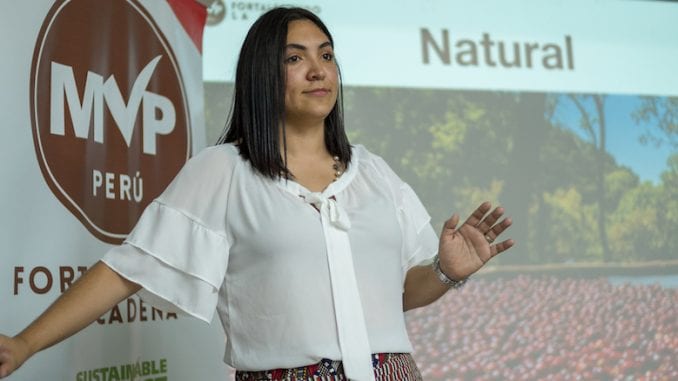
We talk with Sustainable Harvest’s quality control specialist about growing up in coffee and sharing knowledge with other coffee professionals.
BY CHRIS RYAN
BARISTA MAGAZINE ONLINE
Cover photo courtesy of Sustainable Harvest
Coffee has been an essential part of Yimara Martinez’s life since she was born. Her parents were—and continue to be—coffee farmers in Colombia’s Cauca Department, and she began studying and working in coffee evaluation when she was in high school.
Since then, she has quickly gained professional experience and advanced in her career, first working in quality control at the Federacion Campesina del Cauca (FCC) cooperative her family works with, then moving to the United States and becoming a quality control specialist at Sustainable Harvest Coffee Importers in Portland, Ore. While she has acquired knowledge throughout her coffee career, Yimara is also devoted to sharing what she knows, including as a Q Processing Instructor with the Coffee Quality Institute (CQI).
We caught up with Yimara to talk about her life in coffee, how she has turned her garage into a cupping lab to continue evaluating coffees during the COVID-19 pandemic, and much more.
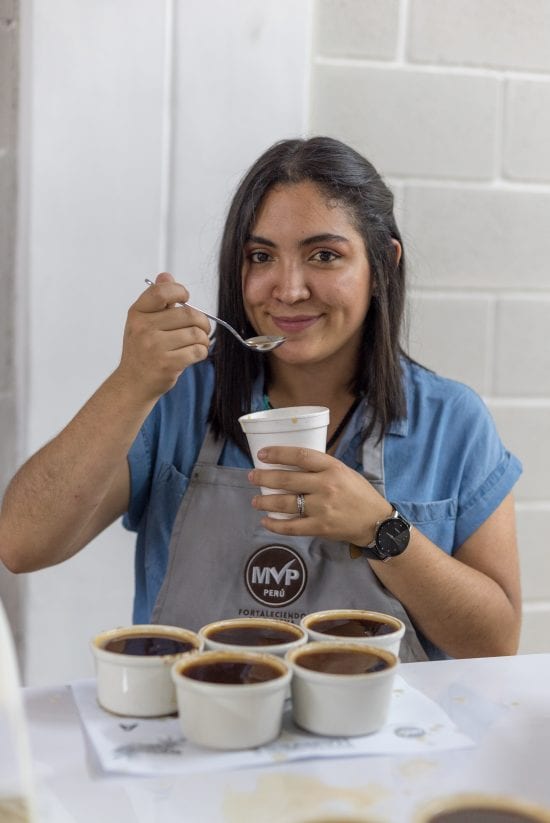
Chris Ryan: Can you tell us a bit about growing up in a coffee family?
Yimara Martinez: I was born and raised in the coffee fields, and my parents are coffee producers in the town of La Esmeralda-Tunía in Cauca, Colombia.
My dad is a member of the Federacion Campesina del Cauca (FCC) cooperative; we sell the coffee harvested on our farm to the co-op. FCC offers a scholarship program for the “next generation,” or young people interested in careers in coffee. While I was in high school, my dad encouraged me to apply and learn about coffee cupping. The application process was rigorous and tested both my coffee knowledge and sensory skills. I was one of 12 people selected—all sons and daughters of producers—and I was given the opportunity to start a training program in quality control at FCC’s lab.
This scholarship was a blessing, and made me realize that I had a passion for coffee and a drive to continue learning as a way to support coffee producers in our community. Out of the 12 scholarship recipients, only three of us continued our journey at FCC as interns after the first month of the program.
After some time I received my Q Grader certification in 2014, and we started a coffee school for sons and daughters of producers from the FCC.
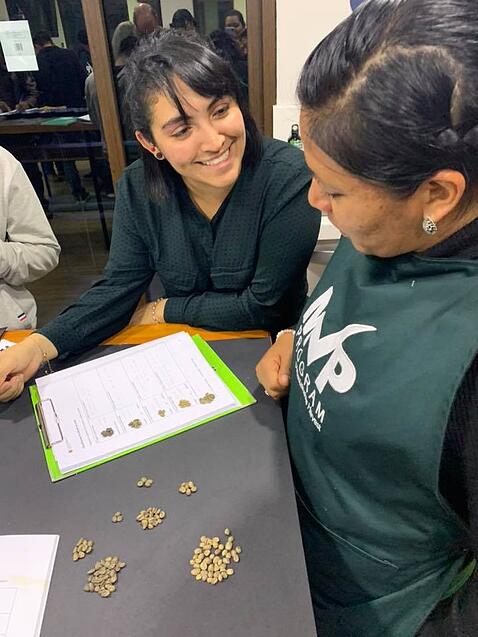
You eventually worked as a cupper at FCC, correct? What do you like about cupping?
In order to continue my internship at FCC, I had to find work; the scholarship only provided funding for one month. Thankfully, the people at FCC saw that I had a true interest in continuing my coffee career, and offered me a paid, part-time position in the lab when I turned 18.
At this point, I was driven to become a professional cupper and make it my career. I found joy in the fact that I could provide feedback and guidance to a producer on how to improve the quality of their coffee. I’m passionate about the people behind coffee. The hard work that producers—like my mom and dad—put into making great coffee every day fills me with pride.
At Sustainable Harvest now, what are the main responsibilities of your job?
I joined Sustainable Harvest’s Portland headquarters three years ago as the quality control specialist. In my role, I oversee quality control for our global operations and work closely with our origin teams and producer partners to meet the quality needs of our customers, ensuring that we meet our contractual obligations. Providing our producer partners feedback on quality and areas of improvement is a highlight of my role since it positively impacts their business.
As a certified Q Processing Instructor, I also travel to different origins and host Q Processing trainings for our producer partners.
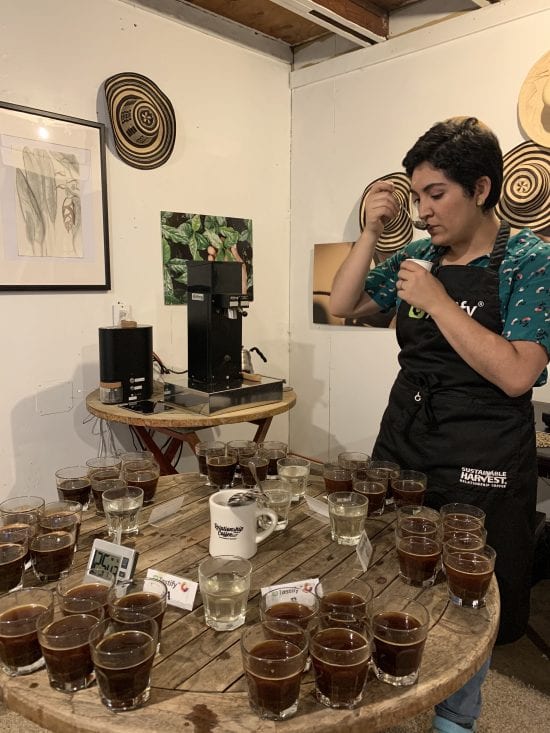
Can you please tell the story of setting up the cupping lab in your home when COVID-19 hit?
Sustainable Harvest was quick to realize the potential havoc and disruption COVID-19 could bring and was fast to implement best sanitary practices to ensure staff safety. This was even before government officials began issuing alerts or classifying it as a pandemic. Because I have to take public transit to work, we at first decided that my quality control colleague would roast at the office and send me samples to my house. After a week or so, the situation escalated and Sustainable Harvest shifted to 100% remote operations, so we set up a lab at my house. This was crucial, as our origin offices were also shifting to remote work but lacked the proper “remote” lab tools, so the Portland office would be vital in ensuring operational continuity. We routed all samples and documents to my “remote lab”—i.e, my garage—where we set up our Ikawa roasters and water activity and humidity testers so I could continue to roast and perform quality control. Now that working from home seems to be the new normal, we’ve brought most of the lab tools to my garage. It is decked out to do proper quality control evaluations without any challenges.
Can you describe how you became a Q Processing Instructor? What do you like about that program and teaching people?
This is a path that has been really meaningful to me when I came to the United States. I didn’t speak English at the time. I had experience in coffee, but I was doubtful that anyone would give me an opportunity. CQI opened their doors, however, and offered a 12-month volunteer position where I had the chance to work with my now mentor, Mario Fernandez, CQI’s technical director at the time. My first project was special: It was the development of the first Q Processing course, which took place in my home state of Cauca at Tecnicafé, an innovative “coffee technology park.” I was part of the first training course and, in 2018, I had the opportunity to be a part of the first generation of Q Processing Level 1 instructors. Toward the end of 2018, I earned my Level 2 Instructor certification, making me the first woman instructor in coffee processing.
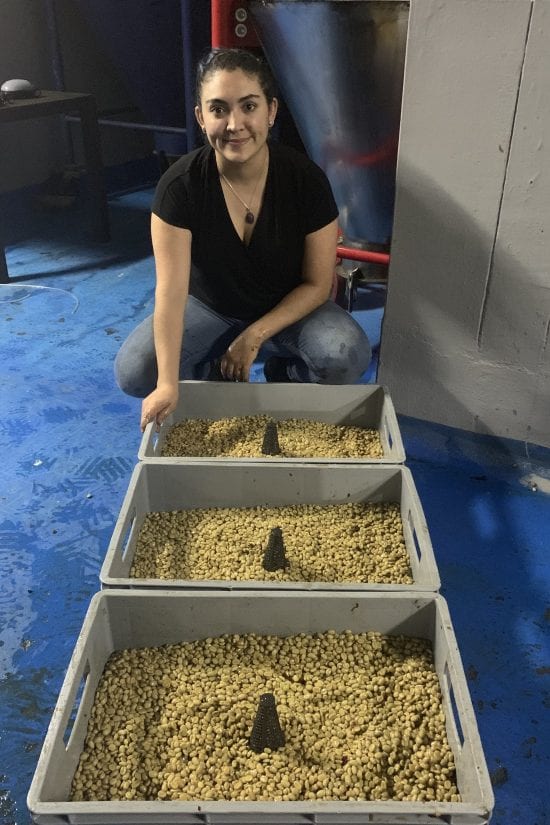
I love teaching coffee producers around the world, and helping them learn and perfect their processing practices. I’ve been given an opportunity to unite the coffee world through sharing my knowledge.
Finally, please tell us what you enjoy doing outside of the coffee world!
I enjoy spending time in nature, and I love working at home in my garden … I really love my garden! There’s something special about planting and listening to the birds sing. Sometimes I draw while I listen to music, and I love spending time with my family.

